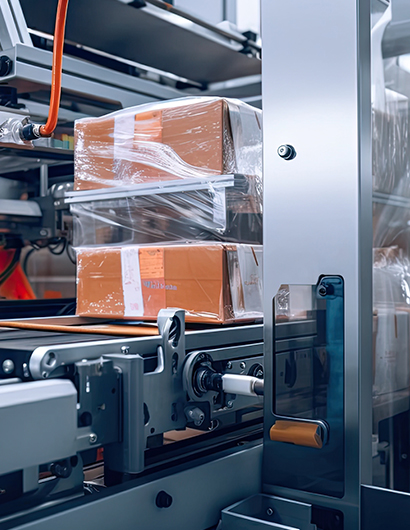

Industrial Automation
Currently, the emphasis of automation has transitioned towards enhancing quality and flexibility in production processes. Industrial automation has numerous advantages compared to conventional manual procedures.
Automated facilities can function more rapidly and precisely, and they can operate continuously without fatigue. They can gather data to assess the equipment’s health status and minimize waste. Automation can enhance safety in perilous circumstances. Automation technology encompasses a diverse array of instruments and methodologies, including robots, numerical control (NC) machine tools, programmable logic controllers (PLCs), computer numerical control (CNC) systems, and industrial sensors. Automation systems can be incorporated into current production lines or function independently, and they can facilitate data collection for the preventive maintenance of equipment.
Automated facilities can function more rapidly and precisely, and they can operate continuously without fatigue. They can gather data to assess the equipment’s health status and minimize waste. Automation can enhance safety in perilous circumstances. Automation technology encompasses a diverse array of instruments and methodologies, including robots, numerical control (NC) machine tools, programmable logic controllers (PLCs), computer numerical control (CNC) systems, and industrial sensors. Automation systems can be incorporated into current production lines or function independently, and they can facilitate data collection for the preventive maintenance of equipment.
In recent years, various industries, including automotive production, food and beverage processing, pharmaceuticals, and electronics assembly, have embraced industrial automation. The trend is anticipated to persist as organizations seek methods to enhance efficiency and competitiveness. The benefits of automation include increased production, enhanced quality, greater flexibility, improved information correctness, and heightened safety.
Regardless of your sector or industrial automation requirements, Dritto possesses the expertise to engineer your automation needs. Our proficient engineering team is committed to delivering best solutions for your automation requirements.
Regardless of your sector or industrial automation requirements, Dritto possesses the expertise to engineer your automation needs. Our proficient engineering team is committed to delivering best solutions for your automation requirements.
Previous slide
Next slide
Application Area
- Automated Material Handling and Conveying System
- Packaging and Warehouse Automation
- Robotic Automation
- System Integration
- Automated Storage and Retrieval Systems
- Robotic Palletizers and De-palletizers
- PLC, HMI Development/Upgradation
- SCADA System Development and Upgrading
- Change of Software or Hardware Platform
- Quality Control and Inspection
